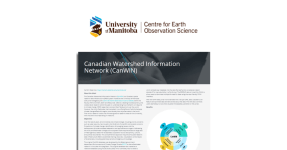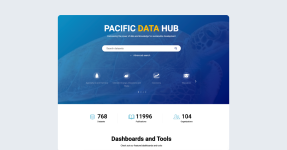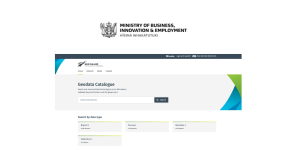October 16th to 22nd is National Water Week. Hosted by the Australian Water Association, a not-for-profit network seeking a more sustainable water future, the theme of National Water Week 2023 is ‘United by Water’. The Week aims to remind Australians of the need to use water wisely and to celebrate achievements in water innovation. Both are crucial as climate change means Australia needs to prepare for a hotter, drier future.
As a global data company specialising in open-source solutions to help solve real-world problems, Link Digital believes that data can play a crucial part in helping to manage water resources more sustainably. This is part of a much larger role for open data/open source projects in helping governments, researchers and citizen’s groups gain a deeper understanding of the changes taking place to the earth’s environment, including the climate. This knowledge can then be used to assist these groups to make more data-driven and informed decisions about the sustainable management of resources and adapting to and mitigating climate change.
Link Digital has been involved in several important water-related open data projects.
In Canada, where the company recently set up an incorporated subsidiary entity, Datashades Inc. trading as Link Digital Canada, this has included work with the Canadian Watershed Information Network (CanWin) to overhaul its CanWIN Data Hub. More recent projects are a newly completed upgrade of Living Lakes Canada’s Columbia Basin Water Hub, and a soon-to-be finalised open data portal for the Nicola Watershed Governance Partnership, a governance agreement involving the province of British Columbia and the area’s First Nation’s people.
In Australia, Link Digital recently completed a redesign of the New South Wales Department of Planning, Industry and Environment’s SEED (Sharing and Enabling Environmental Data) Portal that brings together state-wide environment data on issues relating to land, water, plants, animals and air. This included giving it a fresh look, greater functionality and improved accessibility to ensure all users can freely browse the data they need.
All these portals use the Comprehensive Knowledge Archive Network (CKAN), a piece of open-source software launched in 2006 that can be configured and set up to function as an open data platform once it is deployed and hosted on a web server. In addition to a growing installation base, CKAN boasts a community of users and contributors, which gives it wide potential for adoption and significant capabilities.
The CanWIN Data Hub is a particularly powerful example of open data in the service of helping to solve real-world problems. The Hub is part of Canada’s Spatial Data Infrastructure system, the relevant base collection of standards, policies, applications, and governance that facilitate the access, use, integration, and preservation of spatial data. It is hosted at the University of Manitoba, and managed by its Centre for Earth Observation Science (CEOS). While CEOS researchers conduct fieldwork globally, a particular focus is the Arctic-freshwater marine system because climate change affects this region more acutely than anywhere else in the world. Examining this area on an ecosystem scale requires access to large amounts of complex data across disciplinary, cultural and political boundaries, and hence a research data infrastructure that can accelerate the sharing, discovery, visualisation and analysis of diverse data, including sensitive indigenous knowledge.
The original CanWIN Data Hub was developed by the Canadian Government to share freshwater research in Lake Winnipeg Basin, an approximately 25,000-square kilometre lake in Canada’s Manitoba province, but was not able to capture the complexity of the multi-disciplinary data produced by the portal. Working with various stakeholders, Link Digital redesigned the portal to enable it to show the complex relationships between the various data collected and to allow for greater interoperability. The project also required that the data be built into the existing secure hosting infrastructure to safeguard against corruption and loss.
The Hub is part of a pan-Canadian collaboration between six universities and multiple Indigenous, government and not-for-profit organisations, in turn part of a larger project known as Canadian Consortium for Arctic Data Interoperability. This will allow for the data generated by CanWIN Data Hub to be used to examine the impacts of climate change not only at a local and national scale but also regionally and internationally.
Topics like the one in this post will be discussed in a new series of forums being held by Link Digital on the last Thursday of every month, Australian EDT. These forums will connect you with like-minded experts who are passionate about the importance of open data and want to stay updated on the latest developments in the field. They are free to attend and open to everyone. Register today.



